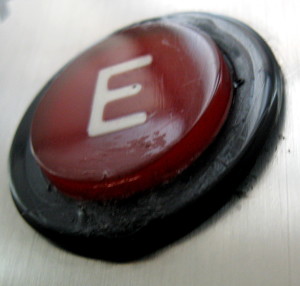 “I’ve got so many bad habits that I need to break. What should I do?”
“I’ve got so many bad habits that I need to break. What should I do?”
This refrain is a frequent plea for help, one I often hear as a coach who specializes in Tiny Habits® for work and behavior change.
However, this appeal is an example of “stinking thinking”—not in the extreme sense but still an obstacle to getting what you want.
For many, “stinking thinking” is the act of self-sabotaging thoughts. You carry on a conversation in your head about how you’re going to fail, that bad things will happen to you and all the ways in which you’re not a very good person.
For purposes of the webinar I’m conducting this Wednesday, May 21 for Communitelligence, I’m using “stinking thinking” to refer to the ways we tax our brain, which reduces our focus, productivity and ability to influence others.
To join me for the webinar, Stop Your Stinking Thinking: 7 Ways To Use Neuroscience To Sharpen Your Mind and Be a More Powerful Communicator and Leader on Wednesday, May 21 at 12 noon ET (9 am Pacific), be sure to sign up as soon as possible. You also should use the promo code connect50 to take $50 off, courtesy of Communitelligence.
Now about those bad habits. Unless you’re at least 100% committed to breaking them, you’re going to have an incredibly hard time changing your behavior. It’s just too hard without superpowers.
You do have an alternative. It’s much simpler, better for you and stickier—that is, you’ll be able to make the change and sustain it.
The alternative is to create good habits.
By intentionally adopting and practicing them, you will ensure that the good habits will swap out the bad.
That’s the beauty of neuroplasticity. Over the past several decades, neuroscientists have confirmed what William James, the father of psychology, proposed more than a century ago. Our brain can adapt and change throughout adulthood.
Our brain is a connection machine and will rewire itself based on experiences.
To help yourself adopt new good habits, you’ll have an easier time if you follow these five basic guidelines, which support the foundational work of Dr. BJ Fogg and his Tiny Habits® program. (In the interest of full disclosure, I’m a certified Tiny Habits® coach.)
- Create a new habit that you really want, not something you think you should do.
- Set up your environment to make it as easy as possible for yourself.
- Break the habit into tiny steps, start very small and then build.
- Practice the habit daily.
- Any time you’re finding your habit too hard, adjust it to make it easier for yourself.
For example, here are three “bad” behaviors that some of my coachees recently switched out with good behaviors plus a sample of the ways they made things easier for themselves.
My coachees are now reporting that with these tiny steps they’re achieving their big goals. And along the way, they’ve also improved their focus, are feeling better and are more productive in all areas of their life.
- From procrastinating to daily writing. To make it easier for themselves, one individual now keeps a journal in her bag all the time. Another opens up a document and writes one sentence immediately after returning to the office after lunch.
- From losing my focus to recharging batteries. Two easy-to-implement actions include setting the timer on the phone as a reminder to take a break and scheduling blocks of time for “mind wandering.”
- From eating poorly and not sleeping enough to taking care of my body. Simple steps here include keeping healthy snacks in the refrigerator (See http://www.superfridge.org as an example.) and setting an alarm to go to bed at the same time each night.
Because our brains are unique, these steps may or may not be effective for you. So you need to experiment to find what will work.
The aim is to find an easy way to get over the hill so you’re walking a clear, smooth path, not trying to climb a mountain.
And with trial and error, you can build muscles in habits that help, not hinder, you.
To learn more, contact me. Meanwhile, think about how you can help yourself by making things tiny and easy.

0 Comments